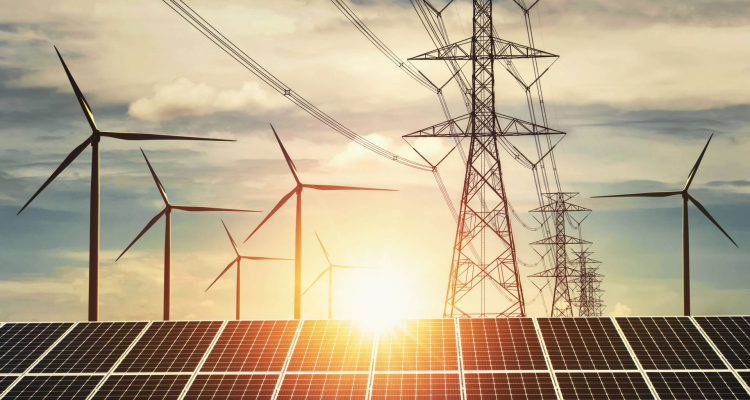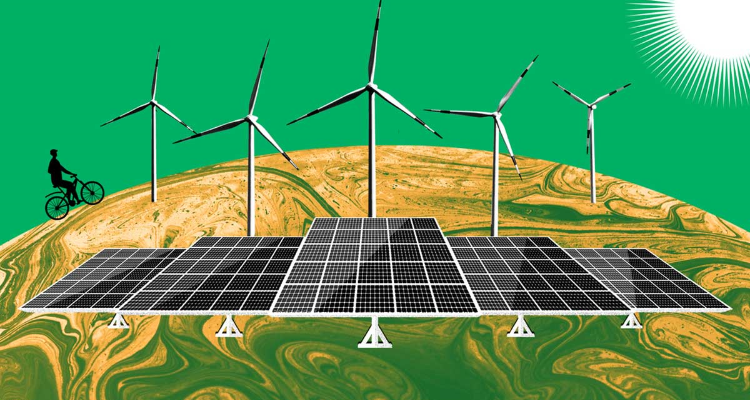Address
304 North Cardinal
St. Dorchester Center, MA 02124
Work Hours
Monday to Friday: 7AM - 7PM
Weekend: 10AM - 5PM
Address
304 North Cardinal
St. Dorchester Center, MA 02124
Work Hours
Monday to Friday: 7AM - 7PM
Weekend: 10AM - 5PM


For the most part, the technology costs of renewable energy sources such as wind and solar are lower than the costs of fossil fuels, and the latter energy sources contribute to climate change, so the world needs to prioritize a renewable energy transition.The Climate Summit, which will be held at United Nations Headquarters in New York on Sept. 20, will consider how to accelerate this transition. Here are five ways to accelerate the energy transition:
Fossil fuel subsidies are one of the biggest financial barriers to the world’s transition to renewable energy. The Secretary-General of the United Nations has been calling on the international community to stop any public and private investment in the fossil fuel industry, one of the main causes of global warming. He also made it clear that “all countries of the world should unite to accelerate the transition from fossil fuels to renewable energy, while halting oil and gas expansion and refraining from financing and licensing new types of coal, oil and gas.”
The International Monetary Fund (IMF) revealed that the fossil fuel industry is subsidized to the tune of $5.9 trillion in 2020 alone. Shifting subsidies from fossil fuels to renewable energy will not only help reduce the use of fossil fuels, but also promote sustainable economic development, job creation, improved public health and equality in more areas, especially in the world’s poorest communities.
It is projected that $4 trillion will need to be invested annually in the development of renewable energy by 2030 in order to achieve net-zero emissions by 2050. Investing in renewable energy is much less costly than subsidizing fossil fuels. By 2030, this approach could save the world up to $4.2 trillion per year in terms of reduced pollution and climate impact alone. There is plenty of money to go around, but at the same time there is a need for commitment and accountability, especially in the financial systems of countries around the globe.
This includes multilateral development banks and other financial institutions, which must adjust their loan portfolios to accelerate the renewable energy transition. According to the UN Secretary-General, “Renewable energy is the only way to achieve real energy security, stabilize electricity prices and create sustainable jobs.”
To make renewable energy technologies a global public good, accessible to all, we need to work to remove barriers to knowledge sharing and technology transfer, including intellectual property rights barriers. Important technologies such as battery storage systems can store energy from renewable sources and release it when people, communities and businesses need electricity. When battery storage technologies are paired with renewable energy generators, we can provide reliable and inexpensive power to isolated and off-grid communities in remote areas such as India, Tanzania and Vanuatu.
Adequate availability of renewable energy components and raw materials will make a huge difference. From the minerals needed to build wind turbines and power grids to the components needed to make electric cars, we need to ensure that all key components and materials are widely available. The UN’s International Seabed Authority (ISA) is currently working with its member states on how to tap into the rich mineral resources of international waters, such as the key minerals needed to make batteries, while at the same time focusing on protecting the marine environment from the harmful impacts that can result from deep seabed activities. We also need to focus on protecting the marine environment from the harmful effects that can be caused by deep seabed activities. We also need to invest more in human skills training, research and innovation in renewable energy components and raw materials.
Global cooperation is essential, but it is also critical to reform domestic policy structures that will simplify and fast-track renewable energy projects and promote private sector investment. We already have the technology, capacity and finance needed for the renewable energy transition, but at the same time policies and processes must be adopted to reduce market risks in order to promote more investment while circumventing bottlenecks that may be encountered.
countries’ contributions to the world, or the action plans that countries develop to reduce carbon emissions and adapt to climate impacts, these targets should be set in a way that is consistent with the goal of limiting global temperature rise to 1.5°C (2.7°F) above pre-industrial levels. It is estimated that to achieve this goal, the share of renewable energy in global electricity generation will have to grow from the current 29% to 60% by 2030.